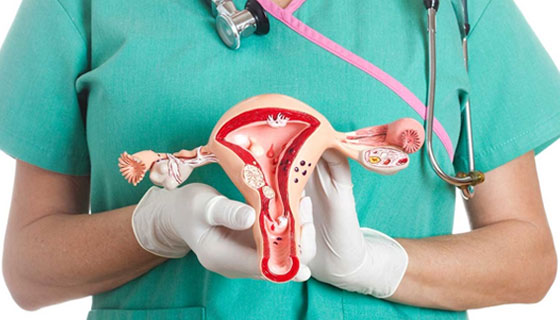Hysterectomy, the surgical removal of the uterus, is a procedure often regarded as the last resort for addressing gynaecological issues. However, for about 5% of Indian women aged 25-49 years, this invasive surgery has become a reality, with heavy menstrual bleeding emerging as the primary reason. This data, derived from an analysis of over 4.5 lakh women during the fourth round of the National Family Health Survey (NFHS-4) conducted in 2015-16, sheds light on a significant health issue affecting women across rural and urban India.
The study, led by researchers from the International Institute for Population Sciences (IIPS), Mumbai, and the National Institute of Health and Family Welfare (NIHFW), New Delhi, raises critical questions about the factors contributing to the high prevalence of hysterectomy and its implications on women’s health.
According to the study, approximately 4.8% of women in the 25-49 age group have undergone hysterectomy. This translates to five out of every 100 women, a staggering figure for a procedure that is often life-altering. The data also reveals a notable disparity in the prevalence of hysterectomy across different states and occupational groups.
Women in agriculture are 32% more likely to undergo this procedure than those in other occupations. Additionally, states like Andhra Pradesh, Telangana, and Bihar report alarmingly high rates of hysterectomy, often sparking debates over unnecessary surgeries and the exploitation of vulnerable populations.
Several social and cultural factors contribute to the rising hysterectomy rates. Menstrual taboos, lack of awareness about gynecological health, and inadequate access to healthcare services often push women towards this extreme measure. In many rural areas, heavy menstrual bleeding is treated as an insurmountable problem rather than a manageable medical condition.
For women in agriculture, the lack of job security adds another layer of complexity. The constant physical labour and economic instability make it difficult for these women to seek timely medical intervention, leading to decisions like hysterectomy as a quick fix to regain their productivity.
The concentration of hysterectomy cases in states like Andhra Pradesh, Telangana, and Bihar is alarming. These regions have been at the center of controversies surrounding unnecessary uterus removal surgeries, particularly among low-income women.
Interestingly, the study highlights that two-thirds of these surgeries are performed in private healthcare facilities. This raises concerns about the role of profit motives, with private institutions potentially prioritizing financial gains over patient welfare. In states with high health insurance coverage for women, such as Andhra Pradesh and Telangana, the ease of reimbursement may inadvertently encourage unnecessary procedures.
Another troubling aspect of the study is the perception of the uterus as a dispensable organ post-childbirth. Many women, particularly in rural areas, view hysterectomy as a way to avoid the pain of heavy menstruation or the fear of cancer. This mindset, coupled with a lack of education and awareness, perpetuates the cycle of unnecessary surgeries.
The study also identifies education and economic status as factors influencing hysterectomy rates. Women from well-off households are more likely to undergo the procedure, potentially due to better access to private healthcare. However, this also suggests that affordability does not always translate to better health outcomes.
On the other hand, uneducated women, particularly in rural areas, often lack the knowledge to seek alternative treatments, making them more vulnerable to invasive procedures.
The findings of this study expose the glaring gaps in women’s healthcare, particularly for those in the agricultural sector. Poor access to quality sexual and reproductive health services leaves many women with limited options, often leading to drastic measures like hysterectomy.
To address this issue, a multi-pronged approach is needed:
1. Raising Awareness: Comprehensive education campaigns on menstrual health and gynaecological issues can help dispel myths and encourage women to seek timely medical care.
2. Improving Access to Healthcare: Strengthening public healthcare infrastructure, especially in rural areas, can provide women with affordable and reliable alternatives to invasive procedures.
3. Regulating Private Healthcare: Ensuring accountability in private healthcare facilities is crucial to prevent unnecessary surgeries driven by profit motives.
4. Empowering Women in Agriculture: Providing job security and healthcare benefits to women in agriculture can reduce the economic pressures that push them towards hysterectomy.
5. Promoting Preventive Care: Encouraging regular health check-ups and preventive measures can help identify and treat gynaecological issues before they escalate.
The rising prevalence of hysterectomy in India is not just a medical issue but a reflection of deeper social, cultural, and economic challenges. Addressing these factors requires a concerted effort from policymakers, healthcare providers, and society at large.
As we move towards a more equitable healthcare system, it is imperative to prioritize the needs of women, particularly those in vulnerable populations. By doing so, we can ensure that procedures like hysterectomy are performed out of medical necessity rather than as a result of systemic failures.
The uterus is more than just an organ; it is a symbol of life and vitality. Protecting women’s health means safeguarding their right to informed choices and access to quality care.

 As we move towards a more equitable healthcare system, it is imperative to prioritize the needs of women, particularly those in vulnerable populations
As we move towards a more equitable healthcare system, it is imperative to prioritize the needs of women, particularly those in vulnerable populations










.jpeg)

.jpg)


.jpeg)
.jpeg)


.jpeg)
.jpg)





.jpeg)


